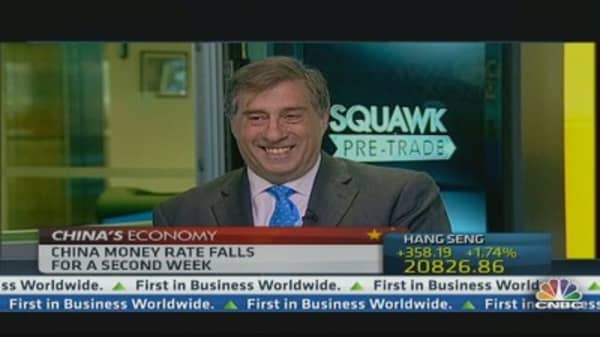Economists may have lowered forecasts for China's economic growth, but markets are still not fully factoring in what weakness in the world's second largest economy means for the rest of the globe, analysts say.
"The problem in Europe, if there is one, is going to come through Germany, and is one that people really aren't focusing on right now," Mark Matthews, head of research for Asia at Bank Julius Baer, said on CNBC late last week.
"Over half of Germany's GDP [gross domestic product] is from exports and I think the slowdown in China has not been embedded into most forecasts around the world," he said. China is the biggest non-European Union market for German exports after the United States.
China's economic numbers have proved mostly weak lately, prompting a number of banks to revise down their 2013 growth forecasts. HSBC and Goldman Sachs now expect China's economy to grow 7.4 percent this year – which would mean falling below Beijing's target of 7.5 percent.
(Read More: Why China's Economy May Be Heading for a Crash)
Concerns over China's slowdown are already being felt in Australia's markets. Weaker-than-expected data from China have contributed a fall in the Australian dollar this month to a three-year low against the U.S. dollar. China is Australia's main trading partner and Aussie markets are, to some extent, seen as a proxy to what is happening in China.





